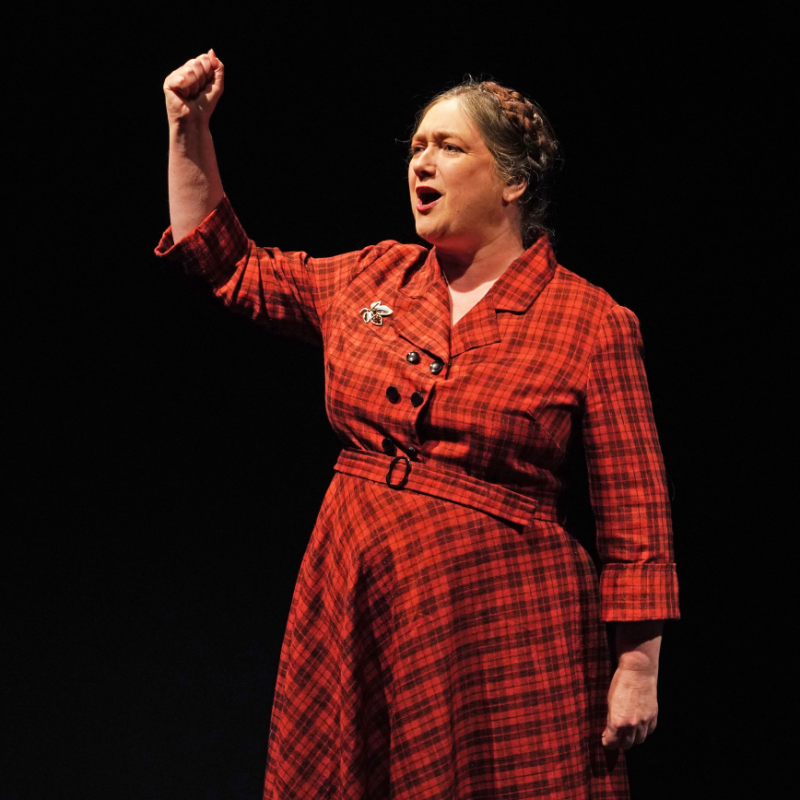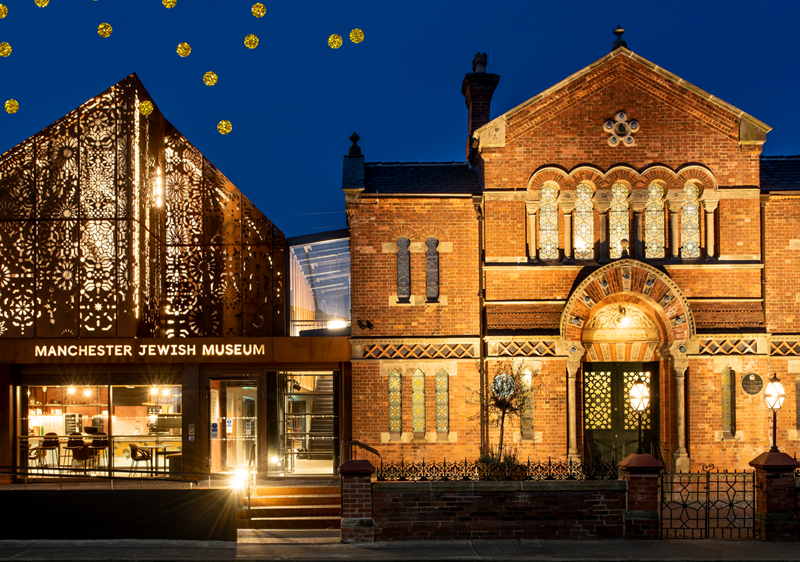“I feel that this is an international story and the pictures are something that everyone can respond to” – interview with Peter Stein
On Sunday, 3 December, we invite our audiences for the final show of our Synagogue Nights season: the Manchester premiere of the award-winning documentary film “Out of Exile. The Photography of Fred Stein”. In this interview we talked to the movie’s director, Peter Stein about telling stories through film, music and what we can take away from Fred Stein’s story.
It begins in darkness: the Nazi threat in Germany forces Fred Stein to flee for his life. In 1930s Paris, destitute, he finds a way to support himself – he turns to photography. And thousands of brilliant photographs are born. “Out of Exile” is an award-winning documentary by Peter Stein, which tells the fascinating story of the relatively unknown photographer, who created iconic images of the 20th century.
Peter Stein has been the Director of Photography on over 50 feature films, TV movies, and documentaries. He grew up learning photography from his father, noted street photographer and portraitist Fred Stein. Fred’s photographs are weaving throughout the film. We see images that are sophisticated, beautiful, and touching, as well as his penetrating portraits of some of the most important figures of the mid-20th century, including his famous photos of Albert Einstein and Hannah Arendt. Unfortunately, Fred died young and his work never got the recognition it deserved. Peter set out on a mission to bring it to the attention of the art world. He soon found out that it is not an easy task…
In this interview we talked about film-making, photography and Fred’s inspiring optimism.
Hello Peter! We are so happy to premiere “Out of Exile” as part of our Synagogue Nights. Could you please tell our readers a bit more about yourself and your work?
First let me say how happy I am to be able to share my father’s work and life story with you. I am a cinematographer and have shot many movies, mainly in the United States for the major film studios in Hollywood, and also the television networks. These were generally narrative films, but I have also done numerous documentaries and independent features. I also was a Professor of Cinematography at New York University’s renowned Graduate Film Program.
How did the idea for “Out of Exile” come about? What sparked your passion for bringing Fred Stein’s story to the screen?
Having grown up as the son of a photographer, and becoming a cinematographer myself, I always thought that my parents incredible life story and my father’s important and beautiful work should not be forgotten – and what better way than to make a movie about him to accomplish this. I always planned on doing it, and when I finally retired from shooting and teaching I was able to spend the time I needed to raise money to finish the project, which I had started shooting almost from the beginning of my career. Of course we then were able to pay for additional shooting and purchase more materials for the film.
Girl in car, New York 1947
As a museum documenting people’s stories, we love looking at archival material. What sort of materials have you been working with to tell Fred’s story through film?
In the film we use my father’s actual words taken from correspondences and interviews I did with my mother before she died. Then my talented wife Dawn who is a film editor, constructed a time line of their life using their actual words. We bought stock footage – film from the times – from online companies. We also bought still photographs from online companies. All the music is also from additional online companies. The internet is a real boon to filmmakers, but it can get pretty expensive. It is great that it can all be done from your own computer in your own home!
The film received awards at film festivals across the world, including the Prague International Film Festival 2021 and Paris International Film Festival 2022. What feedback have you received from audiences so far?
People have been very complimentary about the film. They especially like the way my story was interwoven with my father’s story. Of course the photographs themselves are the real star of the film. Unless you have something important to say or remarkable to show, the film might not be so meaningful, but we had these world-class, mainly unknown, images to draw in the audiences. Also the choice of the music which my wife – as the editor – chose, really helped set the tone for each sequence. Never underestimate the importance of music. Someone once told me the music is the voice of the director. That is really how you can connect with your audience.
Americans All, New York 1943
What excites you most about premiering the film in Manchester and at Manchester Jewish Museum?
I am so happy to be a part of Synagogue Nights. It will be thrilling for me to see in person, how a foreign (for me) audience reacts to the film, my parent’s story, and the pictures. I feel that this is an international story and the pictures are something that everyone can respond to. What happened to my parents as Jews is something we cannot underestimate and we need to keep in mind in our lives today. We need to be strong, to survive, and to help make this a better place for everyone.
What do you hope our audiences will take away from the film?
I hope this film will inspire the audience with the understanding of what an extraordinary person Fred Stein was. In spite of the greatest hardship in his life, the loss of his country, his profession and his friends, he was able to build a new life with the same humanity that he always felt. His pictures are loving – not filled with darkness. They are hopeful and joyous, and while he often made them during times of great stress in the world, there is so much to be appreciated and learned.








